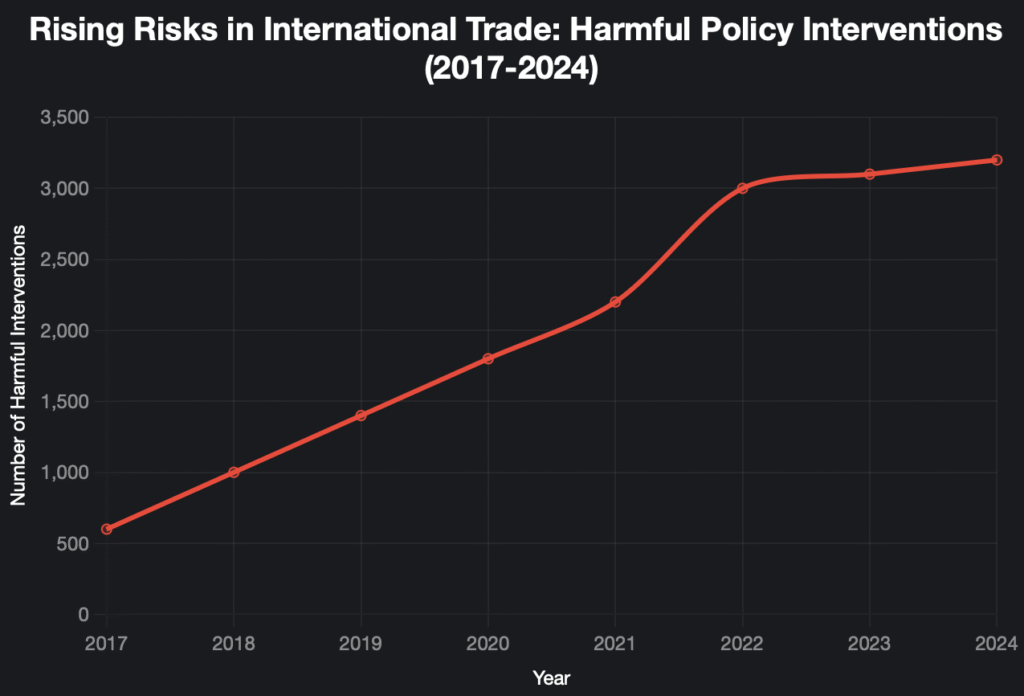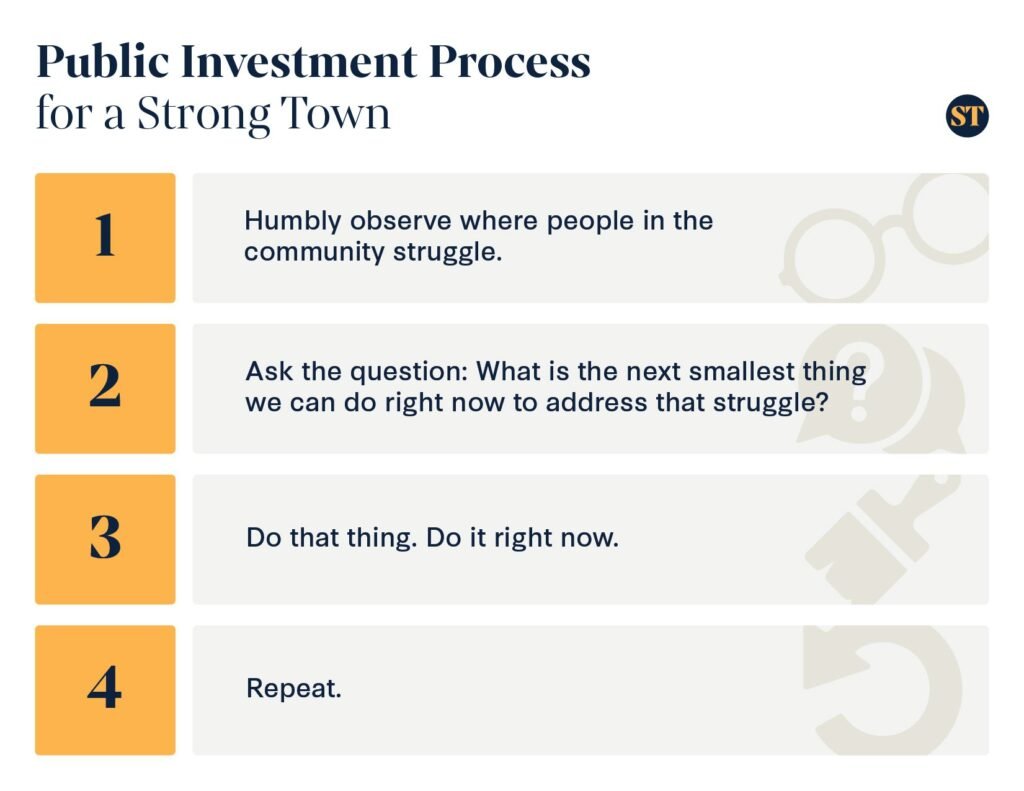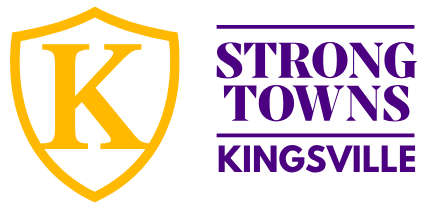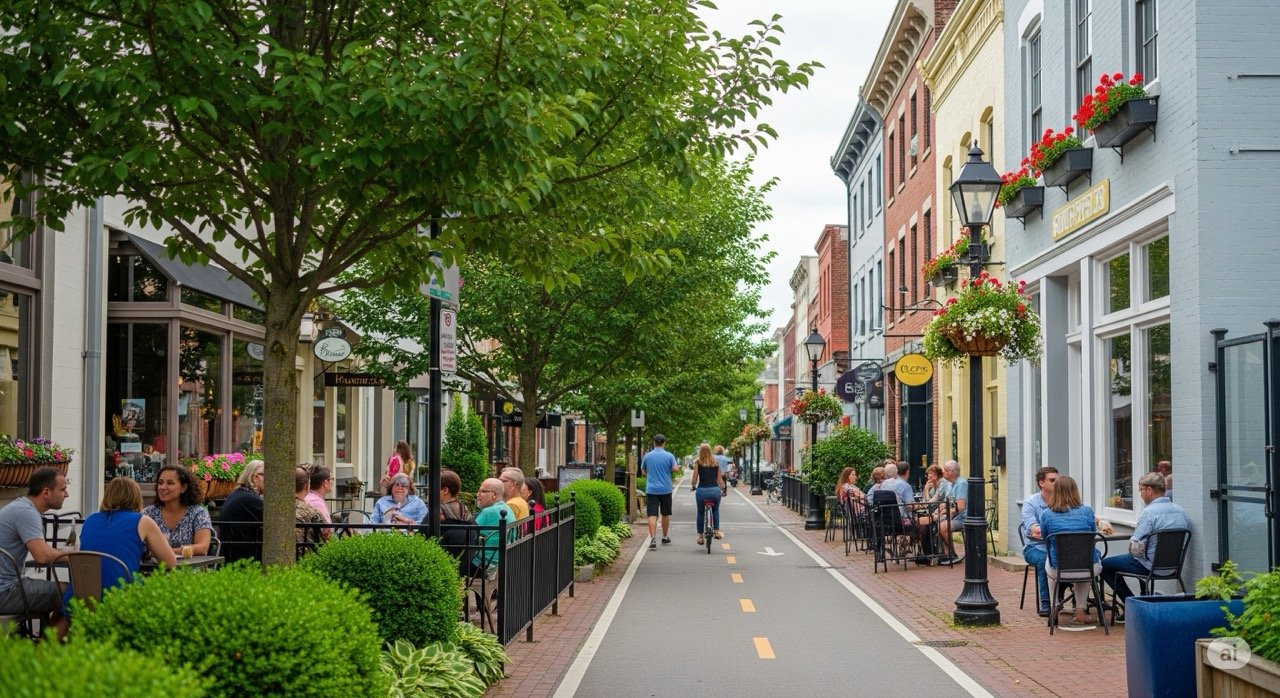North America is in the midst of a grassroots revolution, and Kingsville can get on board or join the have-nots.
As Strong Towns’ founder Charles Marohn explains, top-down approaches often prove rigid and ineffective, while bottom-up strategies encourage intelligent, complex, and truly adaptive growth.
Institutional Failure
This is what Dee Hock, the founder of VISA, observed about top-down approaches:
“Command and control organizations are increasingly unable to achieve the purpose for which they were created. The very nature of these organizations alienates and disheartens the people caught up in them. They are increasingly unable to manage even their own affairs. We are experiencing a global epidemic of institutional failure that knows no bounds.”
This insight hits home when we look at how our longstanding approach to local economics has left our municipalites running an endless loop of the Growth Ponzi scheme—essentially helpless to create significant quality of life gains for citizens. Just look at how Windsor and Essex County lead in all the wrong categories: poor physical and mental health, food insecurity, crime, bankruptcy, unemployment.
International Trade Risks
Yet we still keep dreaming up schemes that expose us to the wild uncertainties of international trade, with all its geopolitical tensions, supply chain disruptions, and economic fluctuations that we can’t control.

More Money Out Than In
The key to a resilient local economy is not rocket science: ensure that more money is coming into our community than is going out. But in reality, we’re sabotaging this balance every day—whether by ordering products from online giants like Amazon, which siphons our dollars away, or by watching local governments chase after big corporations with generous tax incentives. Those companies often extract profits and ship them elsewhere, while their global commodities force our workforce into a relentless race to the bottom, undervaluing our people’s skills and potential.
And as you can see from all the vacant storefronts in Kingsville, the challenges are even more acute: commercial leases have drifted far from our economic reality, making it nearly impossible for aspiring small business owners to get started amid high rates and inflexible terms. These barriers are stifling the very innovation we need.
The Path to Prosperity
Legendary Harvard Business Professor Clayton Christensen provided a roadmap for overcoming this: the real way to lift communities to prosperity isn’t through top-down subsidies or handouts, but by creating the right conditions for market-creating innovations—ideas born from locals to solve local problems, generating sustainable wealth that stays right here.
This principle of locals solving local needs is what lifted several nations out of corruption and poverty to become economic superpowers. Examples include: South Korea, Singapore, and even the United States in the early part of the 20th Century.
Economic Gardening
This leads us to Chris Gibbons’ concept of “Economic Gardening,” which stands in stark contrast to the outdated “Economic Hunting” model, as detailed in this insightful Strong Towns blog post.
Economic Hunting involves aggressively recruiting outside companies through a cutthroat competition of subsidies and incentives—it’s like going after big game, exciting in the moment but often yielding unreliable results with no guarantee of new jobs or long-term benefits. And in many cases, these mega-deals involve so many layers of dealmaking wrapped in NDAs that financial transparency goes out the window.
Economic Gardening, on the other hand, is about nurturing what’s already in our soil: investing wisely in local businesses, leveraging our community’s unique assets to foster organic, high-return growth. It’s proven its worth in places like Florida’s statewide program, which delivered an impressive 9:1 return on every dollar invested.
This approach is core to building a robust local economy and embodies the Strong Towns principle of focusing on neighborhoods and incremental improvements rather than chasing silver-bullet projects. Granted, a kiosk that sells iPhone cases, or a shawarma stand may not be as glamorous as a ground-breaking photo op for a 100-acre facility, but get enough of these small businesses going, and you have a resilient economic base without putting all your eggs in one basket.
Economic gardening has endured for millennia worldwide, outlasting the top-down schemes of our modern age. From ancient Mesopotamian markets to medieval European guilds, this bottom-up approach can’t be beat. Across Europe’s cities—Ukraine and Romania’s resilient markets, Italy’s workshops, the startup hubs of Berlin and Budapest—I saw its strength. In Belgrade, Serbia, my home for seven years, 2,300-year-old neighborhood bazaars and family businesses sustained the economy through the 44 times the city has been destroyed and rebuilt. History separates wheat from chaff: grandiose top-down projects fail, but economic gardening’s adaptive roots flourish–especially in times of chaos like the one we’re in right now.
This simple, bottom-up formula is embodied in the Strong Towns approach to public investment.

And this same process can be applied by the municipal government, local entrepreneurs, independent local builders, neighbourhood associations, volunteer groups, and our Strong Towns group itself.
Action Required
If we’re serious about creating a vibrant, resilient Kingsville, we need our local government to provide the framework to unleash the untapped creativity and innovative energy within our citizens. That’s the most crucial role it can play today: empowering local entrepreneurs to thrive, instead of perpetuating the Growth Ponzi Scheme where we borrow endlessly from our future to cover yesterday’s debts. By committing to Economic Gardening, we can cultivate a prosperous future that’s truly our own.
More than words are needed on this front. Drawing from the flexible, entrepreneur-friendly spaces you encounter throughout Europe—coworking hubs and pop-up retail spots with short-term leases and affordable rents—we’ve launched a survey to gauge interest and demand right here in Kingsville.
If you’re an entrepreneur, remote worker, or freelancer, your feedback will help us develop these kinds of facilities to make starting a business more accessible. Please take a few minutes to fill out the survey—together, we can turn these ideas into reality.
I’d love to hear your perspectives on all this. Feel free to reply directly or join us at our next meetup to brainstorm how we can push these changes forward in Kingsville.
Chad Nantais
Local Leader – Strong Towns Kingsville



Leave a Reply